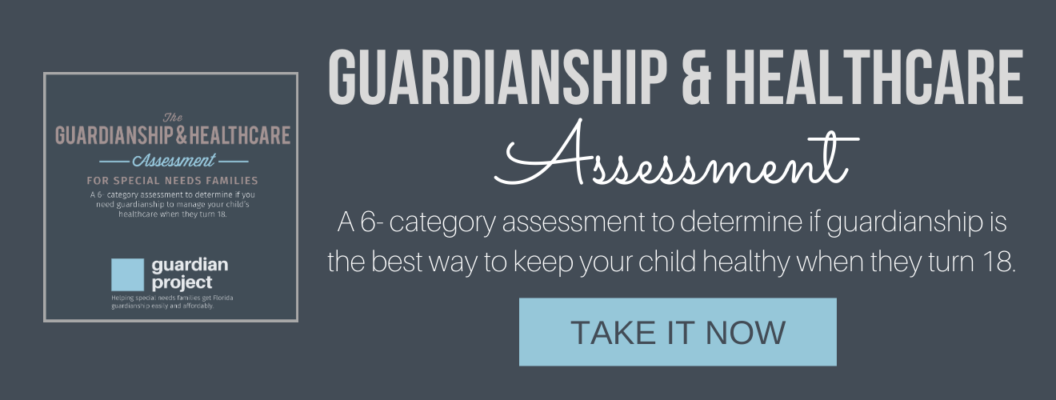A Picture of Life Without Guardianship
Picture your child at the doctor. He’s sick, feels lousy and doesn’t know why. He’s nervous. Maybe his sensory issues are on the cusp of spiraling out of control.
The doctor is biased against people with disabilities. The insurance company doesn’t want to pay for services and it’s a constant fight.
The doctor recommends a treatment plan, maybe surgery.
You’d give anything to be in the room with him, but because your child turned 18 and you have no legal authority to participate in his healthcare decisions.
Think carefully about your child again. What will he do in this situation?
What happens after you die, and his other parent dies? Who’s going to help him?
Maybe you felt guilty that guardianship would take away some of his rights, and you didn’t pursue it.
But picture your child in that doctor’s office. Alone.
What is he going to do?
Will he know if the doctor’s recommendations are in his best interest? Can he ask the right questions?
What if he refuses care because he’s scared? Or his sensory issues make it difficult for him to be in a hospital?
This is what your child’s life can look like without guardianship.
So I ask you. Can he handle this on his own? Does he know which medical treatment options are in his best interest? Can he fight with insurance companies to get treatment paid for? Can he advocate for himself if the doctor is biased against people with disabilities?
What if your child can’t handle this situation? What if he doesn’t get the treatment he needs?
Or gets taken advantage of?
Or dies?
Now think again about your concerns about getting guardianship. About taking away some of his rights.
What’s worse?
Is your decision to avoid guardianship the responsible choice for your child?
What if you later found out that you could have gotten guardianship and still preserved some rights for your child? Only get guardianship in areas where he struggles the most?
How would that feel? That you didn’t do the research?
